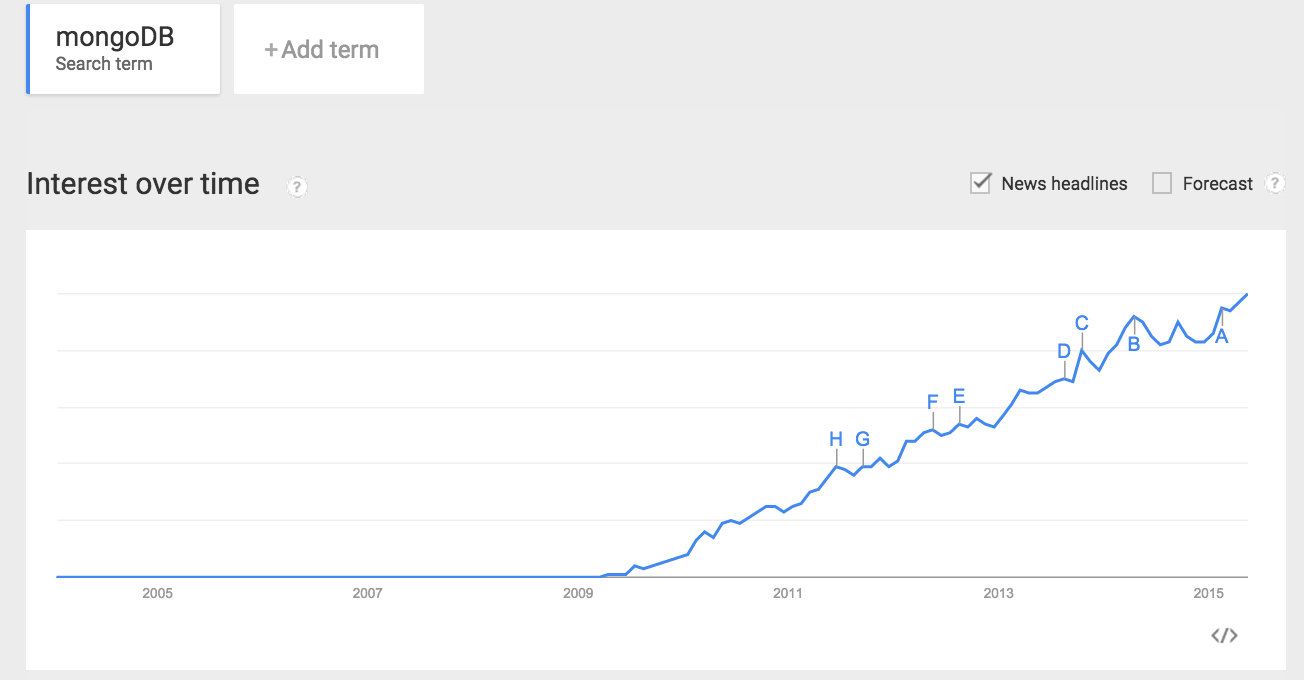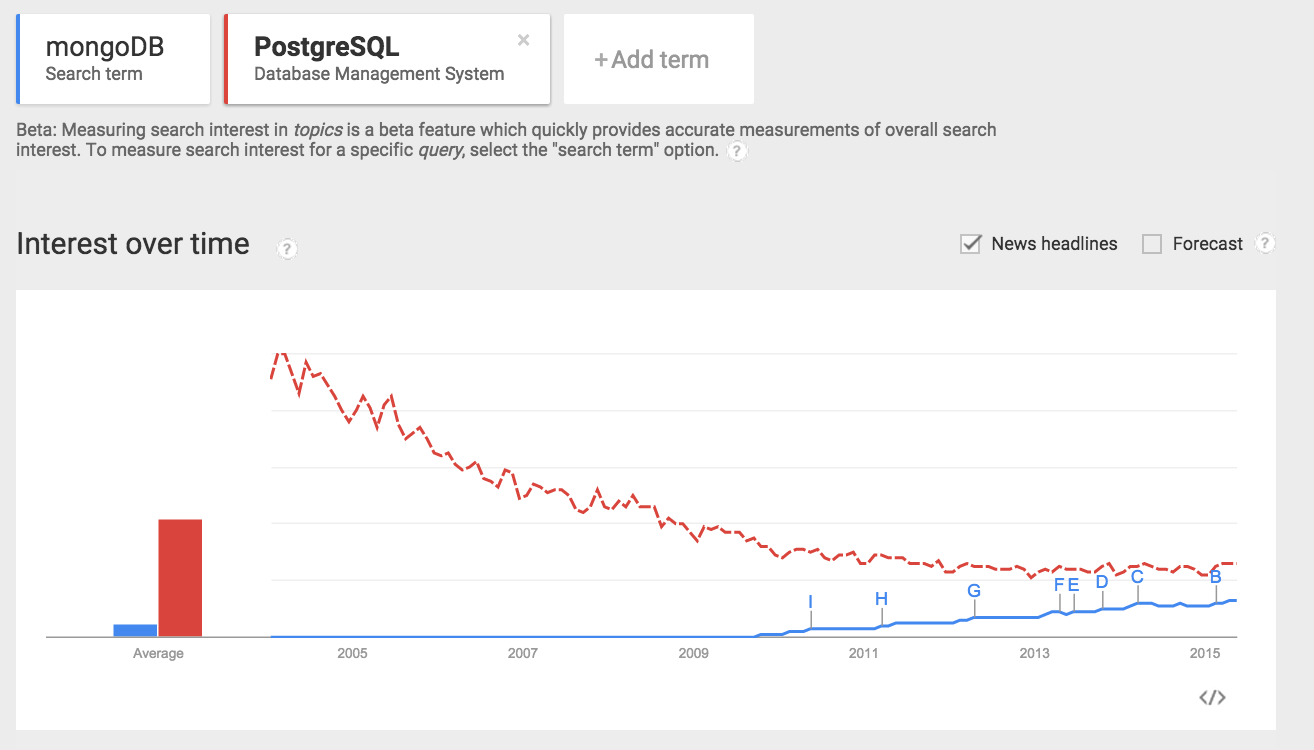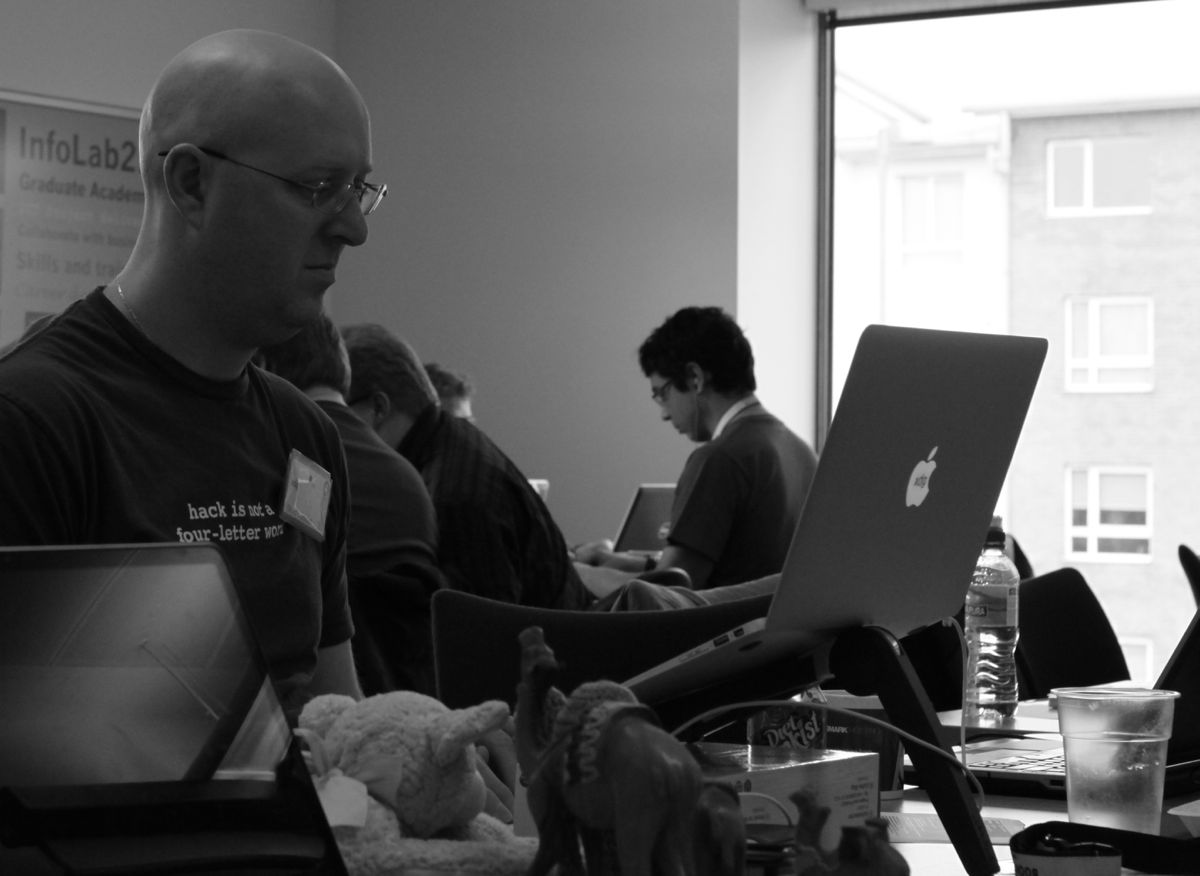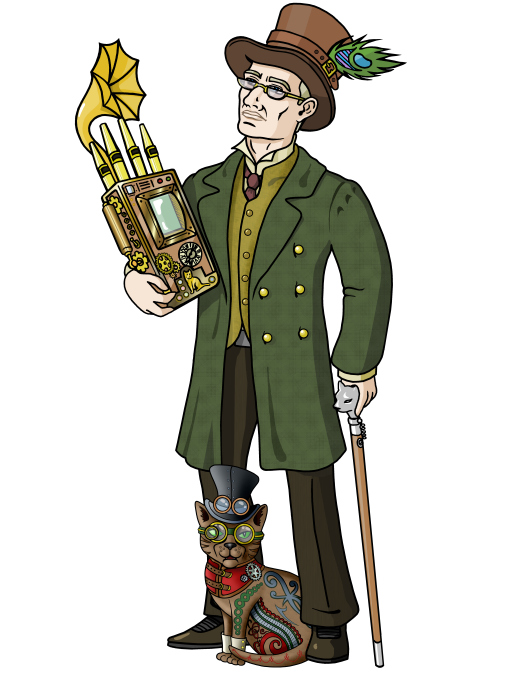
In this article I would like to look at the World of MongoDB as a part of my continuing appreciation of companies associated with Perl.
When you think of Perl and companies connected to it you would not instantly think of MongoDB. However that would be unfair as there is a strong connection between the leading noSQL Database and the Perl programming language.
All About MongoDB
MongoDB is both a product and the organisation that creates and supports that product. Mongo is:
a next-generation database that helps businesses transform their industries by harnessing the power of data. The world’s most sophisticated organizations, from cutting-edge startups to the largest companies, use MongoDB to create applications never before possible at a fraction of the cost of legacy databases.
It is true that over the last decade, and in particular over the last five years there has been a steady increase in the popularity of noSQL. The community of users includes many start-ups who use cloud-based infrastructure providers as well as some larger organisations such as the NHS who have replaced a traditional Oracle system with an Open Source noSQL stack.[1]
MongoDB is one of the leading lights in this noSQL movement:
MongoDB is the fastest-growing database ecosystem, with over 9 million downloads, thousands of customers, and over 750 technology and service partners.
A simple comparison from Google Trend will show you the increase in popularity against other databases. I used MongoDB exclusively to generate the following graphs as it outperforms the term noSQL, yet mirrors its overall projections, so it was acceptible to be used for the following analysis:



So we can see from the above that although SQL (and MySQL and PostgreSQL) started with greater popularity and continues to have a higher popularity, its overall trend appears to have a downward shift (though this seems to be rising once again) while noSQL/MongoDB appears two-thirds into the chart range and has a continuous upward shift.[2]
Mongo Community Groups
MongoDB is not just an organisation and a noSQL database, they have made a great deal of effort to build and maintain a growing community.
Getting involved in the MongoDB community is a great way to build relationships with other talented and like minded engineers, increase awareness for the interesting work that you are doing, and sharpen your skills.
There is an active community groups (MUGs which stands for Mongo User Groups) who meet in a variety of cities around the globe. There are over 100 MUGs globally and that number is on the increase. Developers, users and the broader community are encouraged to meet, have technical discussions and to have fun.
There is also a community of online developers who maintain mailing lists, documentation, project contribution and user group lists as well as their own channel on sites such as Stack Overflow.
You’ll find active conversation around MongoDB online. If you’re looking to learn best practices and share ideas with your global peers
Mongo and Perl
MongoDB has made a significant effort to be a part of the Perl ecosystem, both in terms of language support and developers. MongoDB has offered a Perl driver since its inception in 2009 at a time when many were declaring the decreased popularity of Perl, Mongo thought it important to have core support.
Mongo is one of the only major next-generation database companies to offer an internally developed and officially supported and maintained Perl client
MongoDB employs Perl developers to help maintain this support. It actively supports its Perl developers by funding their attendance at Perl events. Since 2010 MongoDB has been sending speakers to these events some of whom include Kristina Chodorow, Mike Friedman and David Golden
In its support of the wider community MongoDB has been hosting regular New York Perl Mongers meeting since 2012.
It would be an omission to point out that the lead Perl developer for MongoDB is renown leader in the Perl community itself.
David Golden wears many hats in the Perl community: top 10 CPAN contributor; Perl 5 porter and release manager; CPAN toolchain developer; PAUSE administrator; CPAN Testers Metabase architect; blogger; conference speaker; and NY.pm organizer.

Dave Golden at the 2013 Perl QA Hackathon
MongoDB is a Perl company in that they use, employ, support and seem to embrace the same community passion as the Perl Language and other Perl Organisations. Take a moment to visit them and learn more about this vibrant organisation.
Links and Resources
The following links and resources are a good start towards becoming more involved in the vibrant MongoDB community.
- Website: https://www.mongodb.org
- Getting Involved: https://www.mongodb.org/get-involved
- StackOverflow Page: http://stackoverflow.com/questions/tagged/mongodb
- User Mailing List: https://groups.google.com/forum/#!forum/mongodb-user
- Developer Mailing List: https://groups.google.com/forum/#!forum/mongodb-dev
- Contact: https://www.mongodb.com/lp/contact
- MongoDB User Groups (MUG): https://www.mongodb.org/user-groups
Do you want to appear...?
If you would like to appear as one of the companies in this series then you need to send some information to m.keating@shadowcat.co.uk - you can include any or all of the following:
- Name of Organisation;
- How you are connected with Perl;
- Web Address;
- Social media links;
- Logo;
- Pictures (of related activities);
- Email or contact details;
- Location (address if wanted);
- More details on employees, contributions;
- Any advocacy about a Perl thing (event, company, individual, code);
- Anything you feel is relevant including testimonials.
It is easier than you think just write to me about your company the more I have, the more I can edit into different formats. I need the vast majority in plain text so I can use it across different mediums. If you work for a corporate organisation and don't know if you can get permission, don't stress, pass it to HR/Media with the words 'hey wonderful marketing team, this is apparently free promotion, and they love us and what we do with Perl'
Notes
[1] http://www.theregister.co.uk/2014/09/09/nhs_spin2_rips_out_oracle/
[2] Please note that this is a simple analysis based on web headlines and not a thorough research. It is used here to indicate the popularity shift of MongoDB and not to suggest that mySQL/PostgreSQL have lost/diminished in popularity.
